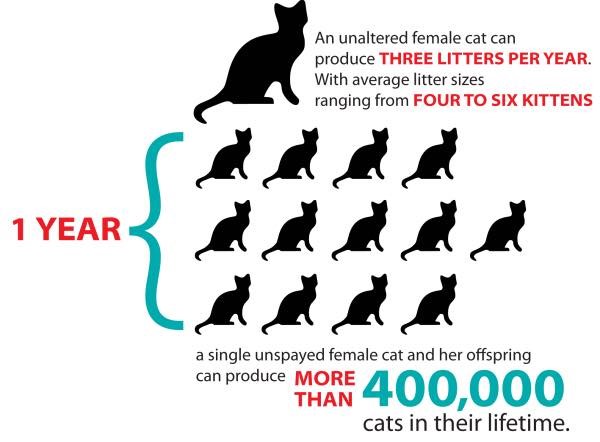Unless you’re a pet breeder, de-sexing your pet is an important part of being a responsible pet owner. De-sexing is sometimes referred to as neutering or sterilisation. This elective procedure is performed under general anaesthesia and involves the surgical removal of the internal reproductive organs. This means the ovaries and uterus for female pets (known as ovariohysterectomy or ‘spey’) or the testicles in male pets (known as castration). Apart from reducing the number of unwanted puppies and kittens, the benefits of de-sexing range from avoiding certain behavioural traits to reducing the risk of medical problems later in life.
Benefits of de-sexing
Male dogs
- Reduced unwanted behaviours e.g. urine marking, inter-dog aggression, roaming and humping
- Reduced risk of constipation due to an over-sized prostate gland
- Reduced risk of cancers e.g. testicular and prostate cancer
- Reduced risk of abdominal injury such as perineal herniation (abdominal rupture of tissue through pelvic floor)
Female dogs
- Reduced risk of mammary cancer (close to 0% if performed before first heat)
- Eliminates risk of pyometra (a life-threatening infection of the uterus, usually after a heat)
- Eliminates risk of ovarian cancer
Cats
In cats, the main reason to de-sex is to greatly reduce the number of unwanted kittens ending up wild or in shelters requiring care and treatment. Cats are prolific breeders and can increase a population very fast leading to increased disease occurrence and welfare concerns. There is also the increased risk to our precious native bird populations with higher numbers of wild cats.
The benefits from de-sexing cats include:
- Reduction in roaming, fighting and spraying behaviours in male cats
- Reduced risk of ovarian and mammary cancers in female cats.
- Reduced risk of testicular cancer in male cats


When should I de-sex my pet?
Cats
For cats, de-sexing them before they reach sexual maturity is important. This usually occurs around 6 months of age, so booking them in before this time is recommended. If your kitten came from the SPCA however this procedure will already be done prior to adoption.
Dogs
The correct age to get your puppy de-sexed depends on its size, breed and gender. Larger breeds have more things to consider than small breeds e.g. joint and bone growth and female dogs have different considerations e.g. heats and urinary development.


Current recommendations:
- Small- medium breeds can be de-sexed safely from 6 months of age
- Large breeds (>25kg as an adult) should wait until 9 months of age to be de-sexed e.g. Labs
- Giant breeds (> 45kg as an adult) should wait until closer to 18 months of age e.g. Great Danes
This is to;
- Allow better development of joints and bones. This reduces the risk of joint injury (cruciate rupture) or diseases like arthritis which can require lifelong medication or surgery to repair.
- Finish growth of urinary system in females. This reduces risk of urinary incontinence occurring later in life (unconscious leaking of urine). This can be a big consideration for indoor dogs.
The Heat
There is a risk associated with waiting until 9 months or later to de-sex a female puppy; the potential for her to experience a heat as this can occur from 6 months in some individuals. A heat usually lasts 2 – 3 weeks and involves behaviour changes, odour changes and blood spotting. Taking a female puppy through a heat can increase the risk of mammary tumour development from 0% to 10% and then up to 25% if a second heat is experienced. The puppy’s safety must also be considered as there is a risk of pregnancy and injury while on heat. Owners who do not have a secure back yard, have entire male dogs, or live in an area with a high number of stray dogs may choose not to wait. If your puppy does experience a heat, then it is recommended to wait 6 weeks from the end of her heat to book the surgery.
Different risks hold different weights to different situations and people. It’s about making an informed choice and weighing up the risks to decide what best suits you and the health of your puppy. As your health professionals, we can help you work through the choices to achieve the best outcome for your pet.
See our second blog on this topic looking and the surgery itself ad what to expect. https://vetsone.co.nz/desexing-why-is-it-important/



